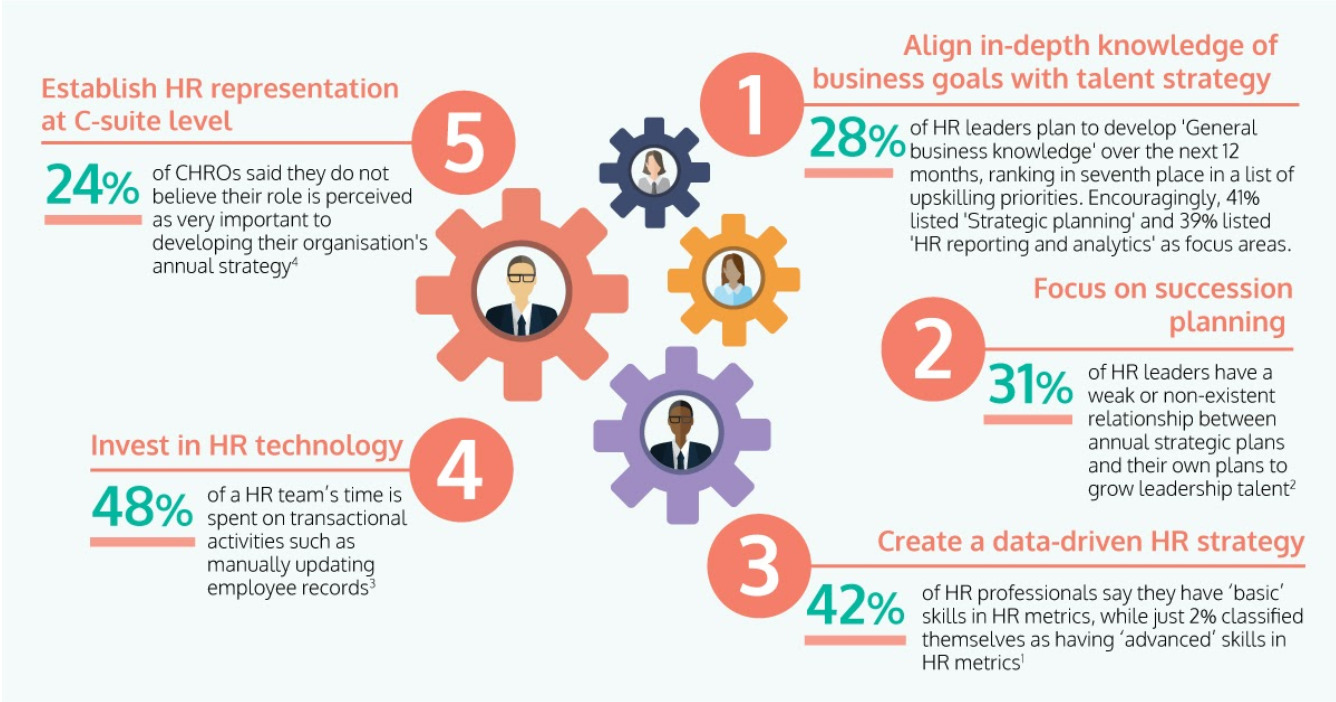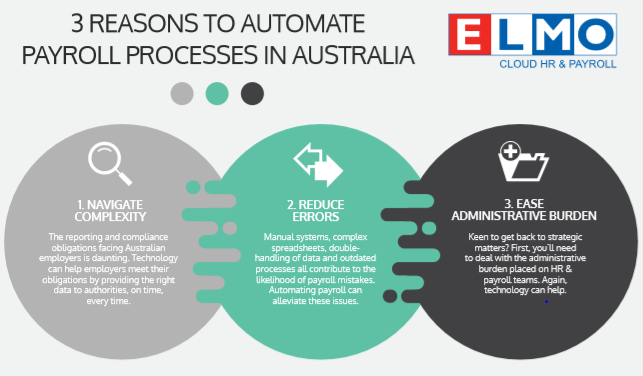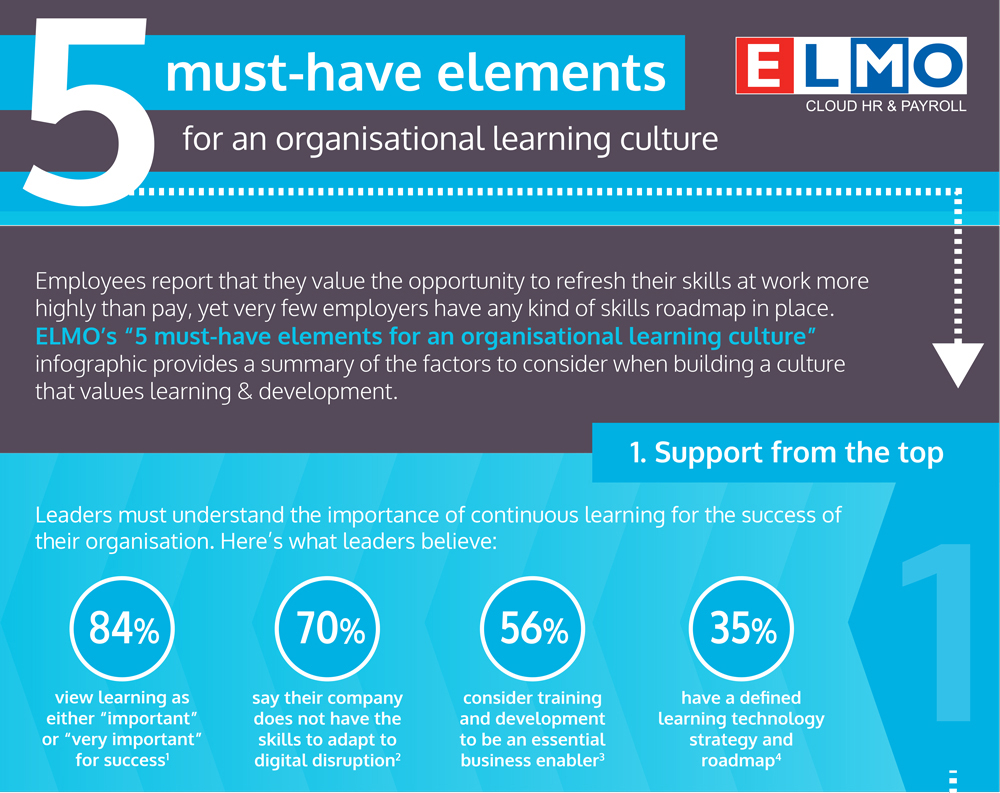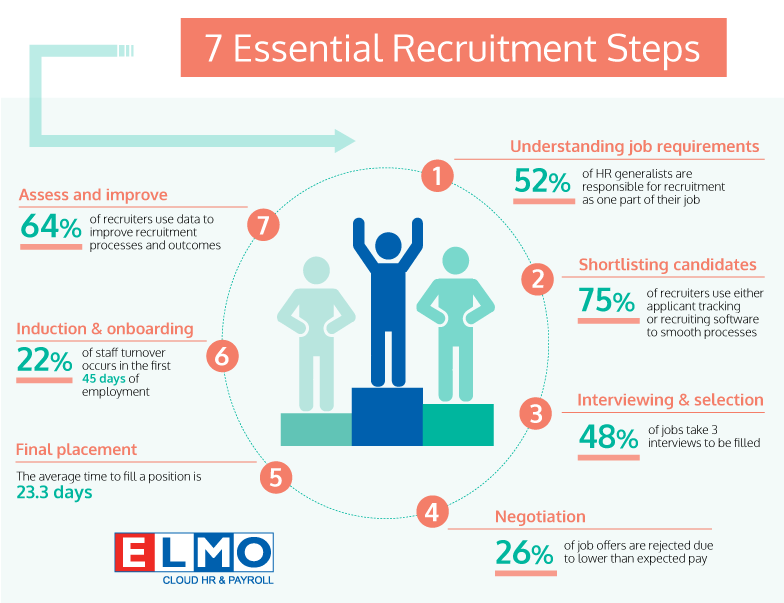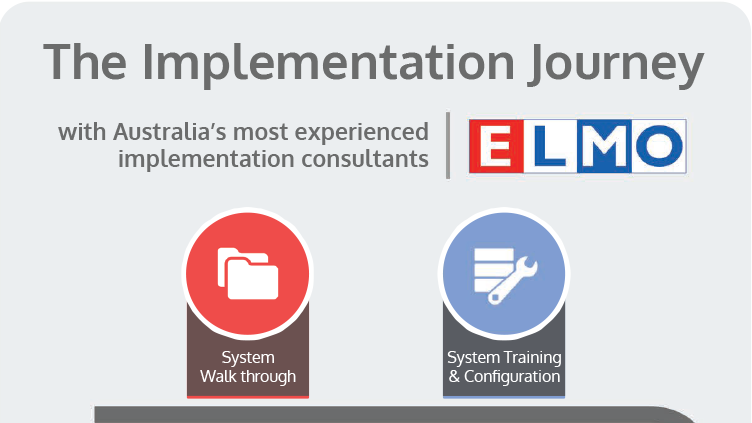Why Automate Payroll Process
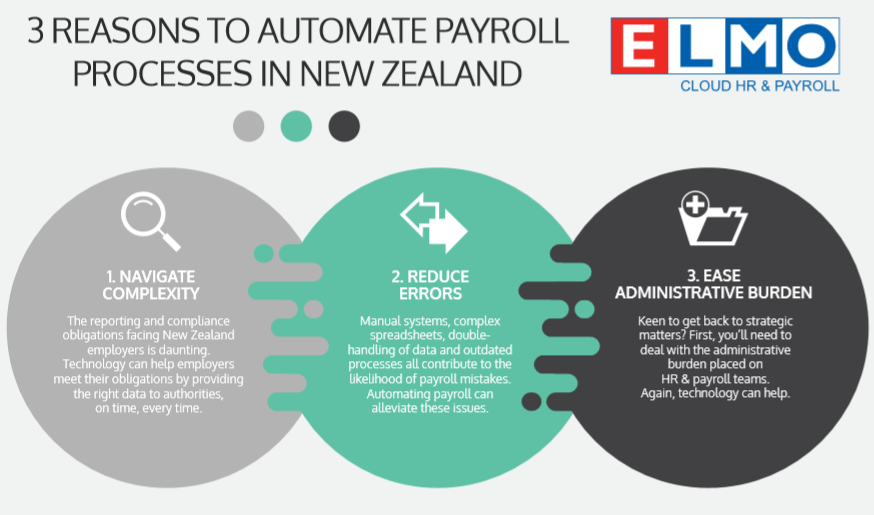
An organisation’s payroll function manages its largest expense, and thanks to technology it can now produce employee insights to help shape organisational strategy. For those employers still using manual processes, ELMO’s infographic, “3 reasons to automate payroll processes”, outlines the primary benefits of automation, backed with key statistics.
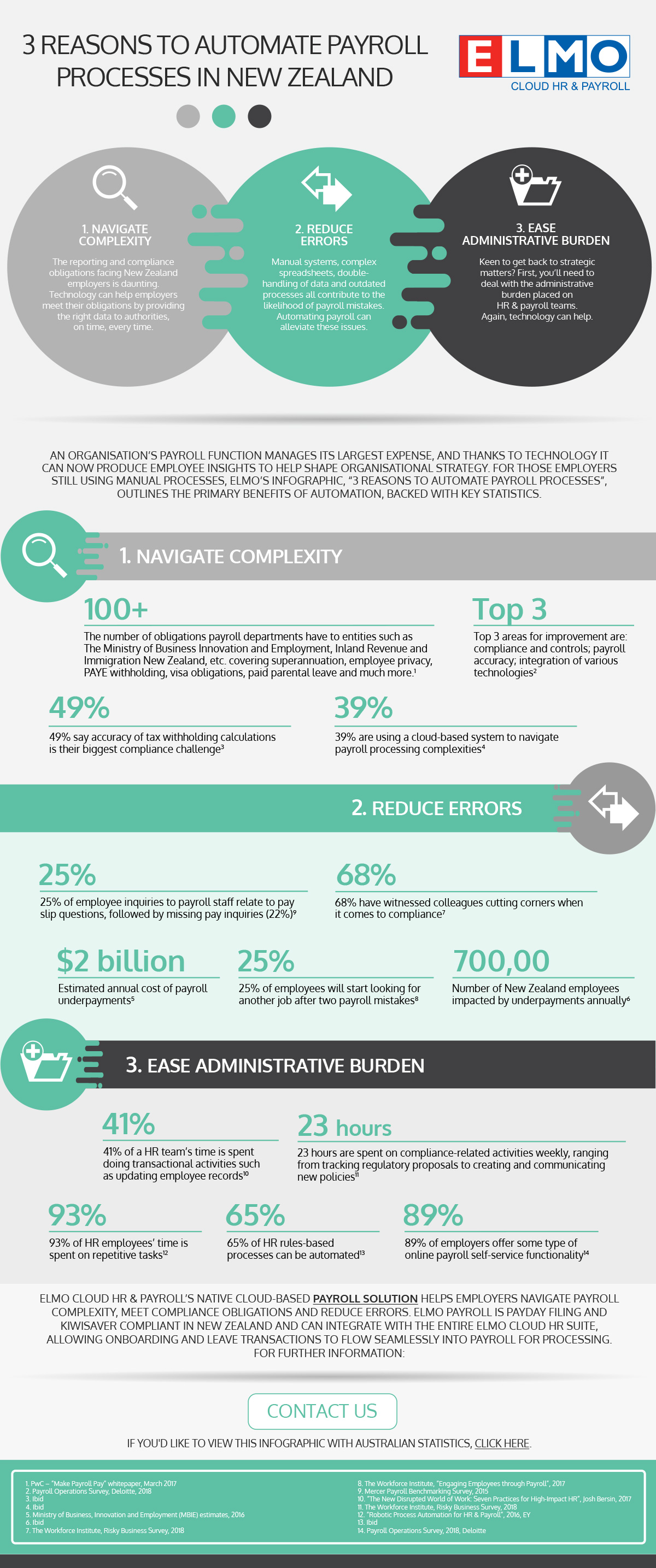
- Navigate complexity
There are over 100 obligations that payroll depts have to entities such as The Ministry of Business Innovation and Employment, Inland Revenue and Immigration New Zealand, etc. covering superannuation, employee privacy, PAYE withholding, visa obligations, Paid Parental Leave, etc. These rules specify pay rates for overtime hours during the week and weekend, minimum standards and employee classifications, just to name a few. 49% say accuracy of tax withholding calculations is their biggest compliance challenge. Technology can help, with 39% of employers already using cloud-based solutions to process payroll and 83% of employers offering the ability to view pay statements online.
- Reduce errors
Manual processes mean increased payroll errors. While 100% accuracy is always the goal, New Zealand employers are still underpaying people, to the tune of $2 billion annually, impacting 700,000 employees. It also doesn’t help that 68% of survey respondents have witnessed colleagues cutting corners when it comes to compliance. The end result? Employee complaints – 25% of staff inquiries to payroll teams relate to payslip questions, followed by missing pay (22%) – and increased staff turnover. Some 25% of surveyed employees say they will start looking for a new job after just two payroll mistakes.
- Ease administrative burden
HR is said to spend 41% of their time doing transactional activities such as updating employee records. An average of 23 hours per week are spent on compliance-related matters and 93% of HR employees’ time is spent on repetitive tasks. To ease this burden, employers are embracing payroll automation. 65% of HR rules-based processes can be automated and 89% of surveyed employers are offering are now offering some type of online payroll self-service functionality.
If you’d like to view this infographic with Australia statistics click here.
ELMO Cloud HR & Payroll’s native cloud-based payroll solution helps employers navigate payroll complexity, meet compliance obligations and reduce errors. ELMO Payroll is Payday Filing Ready and KiwiSaver compliant in New Zealand and can integrate with the entire ELMO Cloud HR suite, allowing onboarding and leave transactions to flow seamlessly into payroll for processing. For further information, contact us here.
 HR Core
HR Core 




